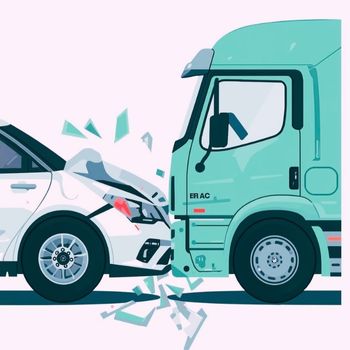When hospitals treat patients injured in motor vehicle accidents (MVAs), payment recovery can be complicated, especially when liability and coverage are unclear.
Hospital liens are a key tool that helps hospitals recover reimbursement from the settlement or judgment resulting from the accident. Properly filing and managing these liens ensures compliance with state law and protects hospital revenue.
What is a hospital lien for an MVA?
A hospital lien gives a healthcare facility the legal right to seek payment directly from any settlement, verdict, or insurance payout associated with a motor vehicle accident. It allows hospitals to recover the reasonable cost of emergency and medically necessary care provided to accident victims when another party is legally responsible.
These liens exist to ensure hospitals are not left uncompensated for emergency treatment, particularly when patients lack insurance or when auto liability coverage is pending. They also preserve financial stability for trauma and emergency departments that must treat patients regardless of their ability to pay.
When to file a hospital lien after a motor vehicle accident
Hospitals should file a lien whenever a patient is treated for MVA-related injuries and there is a potential liability claim, such as when:
- Another driver is at fault for the accident
- The patient’s legal counsel intends to pursue a settlement or lawsuit
- Auto insurance coverage (e.g., PIP, MedPay, or third-party liability) is available
Best practice: File the lien as soon as possible after discharge, ideally within 10–15 business days, to meet statutory deadlines that vary by state.
State-specific lien laws and filing deadlines
Hospital lien statutes are established at the state level, and compliance depends on adhering to strict procedural rules. Key elements include:
- Filing deadlines: Most states require liens to be filed within 10 to 180 days after discharge.
- Filing location: Liens are typically filed with the county recorder or clerk in the county where services were rendered.
- Notice of requirements: Hospitals must usually provide written notice to the patient, at-fault driver, attorney, and applicable insurance carriers.
- Lien validity: Failure to file or notify parties correctly can make a lien unenforceable.
- State variations: Some states restrict or prohibit traditional hospital liens on MVA claims, requiring providers to pursue subrogation or direct insurer billing instead.
Action tip: Always confirm each state’s current lien law and maintain a database of deadlines, notice forms, and contact points for all counties in which your hospital provides emergency care.
Common challenges in managing MVA hospital liens
1. Complex legal procedures
Each state’s lien statute is unique, requiring precise compliance. Even minor errors – like missing a notice deadline can void a lien.
Best practice: Partner with a third-party recovery specialist experienced in MVA and hospital lien law. The firm should have licensed attorneys and paralegals familiar with state-specific statutes and filing offices.
2. Manual tracking and missed deadlines
Most EMR or billing systems are not designed to track lien deadlines or manage legal correspondence.
Best practice: Implement automated lien management software that applies rules for each state, generates notice letters, tracks expiration dates, and maintains lien status through settlement. EnableComp’s RPA-driven lien management system, eRCM E360®, for example, uses a rules-based engine to ensure every MVA lien is filed and perfected within state guidelines.
3. Staff turnover and limited legal knowledge
High turnover in patient financial services departments often leads to inconsistent line-handling and missed recoveries.
Best practice: Use an outsourced MVA recovery team that manages lien workflows end-to-end identifying eligible cases, filing liens, monitoring settlements, and ensuring legal compliance. This allows hospital staff to focus on core billing functions.
Maximizing revenue from MVA claims
Motor vehicle accident cases typically represent a small share of a hospital patient mix but can yield significant financial recovery if liens are properly managed. MVA/TPL payments often reimburse a higher percentage of billed charges than commercial or government payers.
Best practice: Hospitals should integrate MVA and lien recovery into their overall complex claims strategy, leveraging automation, analytics, and legal expertise to capture every valid opportunity for reimbursement.
How EnableComp can help
EnableComp serves as a trusted extension of your business office, specializing in motor vehicle accidents and third-party liability recovery. Our team manages every aspect of MVA claims from identification to filing and resolution using technology and legal oversight that ensure compliance with current lien laws in all 50 states.
With proprietary analytics, RPA automation, and an in-house legal network, EnableComp consistently helps hospitals:
- Recover MVA/TPL payments faster
- Eliminate missed deadlines and legal exposure
- Increase out-of-state and in-state MVA revenue by 50% or more
If your team is ready to protect your rights and maximize MVA lien recovery, EnableComp can simplify the process and strengthen your bottom line.





























